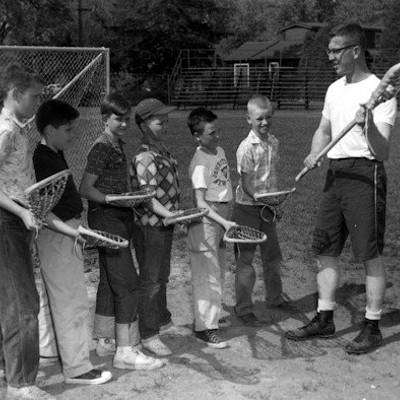[
{
"name": "500x250 Ad",
"insertPoint": "5",
"component": "15667920",
"parentWrapperClass": "",
"requiredCountToDisplay": "1"
}
]
The child's point of view often lends a special combination of innocence and insight to narrative, which explains its use by writers like Mark Twain, Henry James, Graham Greene, and William Faulkner. Even when it concentrates on children, the cinema, however, generally shows children from an adult perspective. The subjects are often drenched in buckets of syrup, as in Song of the South, say, or The Secret Garden, as if children regarded the world with the same mixture of cynicism and sentimentality as the filmmakers.
Once in a while, a movie honestly and successfully examines the complexity of the child's world from the child's point of view. Examples are The Night of the Hunter, Lord of the Flies, The Go-Between, or in the present instance, the new Italian film, I'm Not Scared.
It is directed and co-written, oddly enough, by Gabriele Salvatores, whose previous work, like the Oscar winner Mediterraneo, tends toward the comedic. The picture confronts, in a deceptively simple manner, the familiar theme of a child's loss of innocence. This time it is accompanied by a kind of transcendent sacrifice.
Set in some tiny, unnamed spot in a rural area of Southern Italy in the summer of 1978, I'm Not Scared develops through and around the personality of a ten-year-old boy named Michele (Giuseppe Cristiano), who witnesses and ultimately suffers the inexplicable cruelty of the adult world.
The initial sequences carefully establish Michele as a kindhearted and courageous little boy, which foreshadows the path his later actions will follow. Michele accidentally discovers a hidden basement of some kind near the abandoned house where he and his friends play their occasionally dangerous games.
Pulling aside the cover, he sees a foot protruding from beneath a blanket, which frightens him into running away. His curiosity eventually overcomes his fear, and he returns to find a wretched, filthy boy of his own age imprisoned in the dark hole, chained to a stake and suffering from thirst and hunger.
Michele smuggles food and water to the boy and tries to solve the mystery of his presence. Deranged by his confinement, the prisoner claims he is dead and believes that Michele is his guardian angel. Observing the strange uneasiness of his mother (Aitana Sanchez-Gijon) and father (Dino Abbrescia), and overhearing his father's conversations with a group of his friends, Michele comes to realize that the men have kidnapped the boy, Filippo, and hold him for ransom (the practice at one time was practically an industry in Italy).
As the relationship between Michele and Filippo, who are the same age, develops, an inevitable process of identification takes place, suggesting that Filippo is Michele's alter ego, another version of himself, cruelly victimized by a capricious and incomprehensible conspiracy of adults, which of course includes Michele's parents. One of the conspirators, through the betrayal of a friend of Michele's, discovers the relationship, which sets in motion the terrible, tragic, and essentially inevitable conclusion of the gang's and the movie's plot.
The director employs the mechanics and some of the substance of the suspense thriller, along with a hint or two of the horror flick, to generate considerably more important meanings beyond the familiar shock and excitement. Michele's growing awareness of the possibilities of evil in the people he loves represents a far more profound violence than any of the superficial plot twists and surprises.
When he attempts to rescue Filippo from the death the desperate kidnappers plan, his actions approach a genuine spirit of transcendence. He symbolically becomes the angel that Filippo fantasized, in a moment of beautiful and moving sacrifice.
The director handles the child actors with remarkable skill and a minimum of conscious artfulness, allowing them to seem not at all like professionals but simply like real children, natural in their occasional awkwardness, their sullen silences, their transparent emotions. Appearing in his first movie, Giuseppe Cristiano displays a remarkable talent, expressing a range of emotions with a minimum of the sort of showy "performing" that characterizes so many juvenile actors, making Michele both lovable and entirely credible.
Salvatores also employs the mostly empty rural setting to great effect, using the yellow fields of wind-whipped wheat where the children play to suggest the summer heat, the harsh geography, the impoverishment of their lives, but also the place to which they can escape their parents, the constriction of unjust rules, the machinations and betrayals they sense even if they do not fully understand.
He maintains throughout a consistency of point of view, enabling us to see everything on Michele's level, through Michele's eyes, and thus comprehend his loss of innocence, the contrast between the child and the adult and the difference between good and evil.
I'm Not Scared (Io Non Ho Pauro) (R), starring Giuseppe Cristiano, Mattiu Di Pierro, Aitana Sanchez-Gijon, Dino Abbrescia, Giulia Matturo, Stefano Biase, Fabio Antonacci, Fabio Tetta; based on the novel by Niccolo Ammaniti; screenplay by Niccolo Ammaniti and Gabriele Salvatores; directed by Gabriele Salvatores. The Little Theatres.
Latest in Movie Reviews
More by George Grella
-

Film Review: "Cake"
Jan 26, 2015 -

Film Review: "American Sniper"
Jan 19, 2015 -

Film Review: "Inherent Vice"
Jan 12, 2015 - More »






